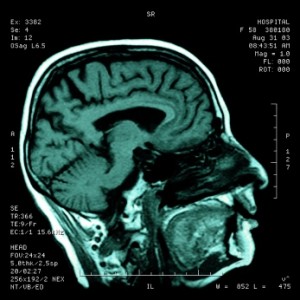Interesting Recent Studies and Articles on Neuroplasticity, Cognitive Reserve, and Brain Fitness
 Here are four studies and articles, published in January, that report very interesting findings and offer inspiring ideas:
Here are four studies and articles, published in January, that report very interesting findings and offer inspiring ideas:
- An article on the role of neuroplasticity in Rep. Gabrielle Giffords’ recovery.
- A new study that used a blood test able to detect beta amyloid 42 (the protein fragment that makes up Alzheimer’s plaque) and suggested that the association between amyloid and cognitive decline could be modified by cognitive reserve.
- An article on a new brain scan technology to detect Alzheimer’s pathology in the brain.
- An article reporting the answer of Don Tapscott to the question “What scientific concept would improve everybody’s cognitive toolkit?”
.
1. This article from the Washington Post explains how neuroplasticity will help Rep. Gabrielle Giffords recover from her brain injury:
brain reorganization after injury is far more common and extensive than previously thought … neuroplasticity depends to a great degree on experience — which is to say, what the brain is forced to do in the critical weeks and months after it is injured.
When an area with a specific function is destroyed, the brain first attempts to recruit nearby cells, which are often doing similar tasks, to change and perform the function of the destroyed cells.
.
2. In this study, Dr. Yaffe and her colleagues measured risks of Alzheimer’s by measuring beta amyloid (the protein fragment that makes up Alzheimer’s plaque) levels in the blood. They found that the less beta amyloid in the blood, the more cognitive decline. However lifestyle factors can affect this relationship:
older adults without dementia and with lower ?-amyloid 42/40 levels have an increased rate of cognitive decline over 9 years compared with those with higher levels
the association between ?-amyloid plasma level is greater among those with less education, lower literacy, and an APOE e4 allele
those with high cognitive reserve had less or no association with ?-amyloid level and rate of decline
In other words people with high cognitive reserve (as measured here by their education, literacy, and absence of the APOE e4 allele): a) experience less cognitive decline than people with low reserve and b) are more resistant to the accumulation of ?-amyloid in the brain. This is another great evidence that mental stimulation does work as we discussed here earlier.
.
3. This NY Times article reports on a new brain scan showing the characteristic plaques of Alzheimer’s disease in the brain of a living person. If approved by the FDA such scan would be crucial in helping establish an Alzheimer’s diagnosis:
Such scans would be especially valuable in a common and troubling situation — trying to make a diagnosis when it is not clear whether a patient’s memory problems are a result of Alzheimer’s disease or something else.
Some people have plaque without having Alzheimer’s, so if a scan shows plaque, doctors will have to use their clinical judgment, taking into account a patient’s symptoms, in deciding what the scan results mean.
.
4. This article from the Huffington Post reproduces the inspiring answer of Don Tapscott to the question “What scientific concept would improve everybody’s cognitive toolkit?”
The existence of lifelong neuroplasticity is no longer in doubt. The brain runs on a “use it or lose it” motto. So could we “use it to build it right?” Surely if we are proactive, the demands of our information rich, multi-stimuli, fast paced, multitasking, digital existence can be shaped to our advantage
Want to be a surgeon? Become a gamer or rehearse while on the subway. Rehearsal can produce changes in the motor cortex as big as those induced by physical movement.
.
If you want to learn more about neuroplasticity, check out these related posts:


